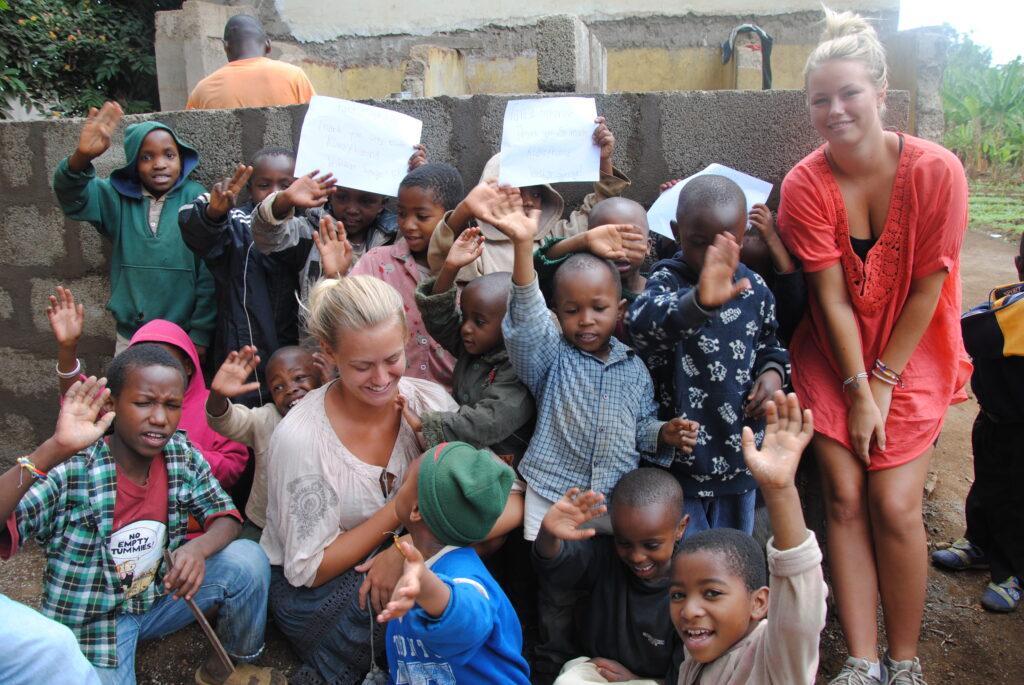
Administration
sending organizations to employ full-time staff to build partnerships and recruit, support, and manage volunteers. There is a lot of work that goes into ensuring your program is set up and you are supported before and during your trip.
Recruiting Volunteers
Most local NGOs are unable to afford the cost of recruiting international volunteers. This cost is taken up by the sending organization and includes advertising, brochures, and customer service for prospective volunteers. A portion of a volunteer’s fee goes directly into maintaining this recruitment drive for the future to ensure a consistent flow of volunteers.
Supporting Volunteers:
Many international volunteers have never traveled overseas. Sending organizations to provide a wide range of support to their volunteers including pre-departure help with information about vaccinations, travel insurance, and fundraising.
During the volunteer experience, some organizations (like Global Safaris) provide continued support even while a volunteer is working with the receiving organization in their host country. If something goes wrong, a sending organization should be there to support you and have the resources available to do so. This means staffing, vehicles, emergency funds, etc.
Building Partnerships:
Sending organizations aim to build long term partnerships with reputable local NGOs and through these, volunteers are given access to the local community or environment in a way no unsupported volunteer could hope for.
Projects often take many months to organize so that when volunteers arrive, they can use their time effectively and productively. So, even if a project does not receive volunteers year-round, it is often an annual cycle to plan, carry out and review a volunteer program.
This means a continued staff presence in building and maintaining relationships. Global Safaris staff visits every project, often more than once in the lead up to sending volunteers, and often when volunteers are there, to ensure that the project is going to plan and operating to Global Safaris’ high standards.
Managing Volunteers:
Depending on the goals, the projects of local NGOs can take weeks or years to complete. Short term volunteers often cannot complete an entire project during their stay. In communication with the receiving organization, it is the role of the sending organization to manage the flow of volunteers to and from projects. This management allows volunteers with limited time to hit the ground running.
“We are very proud to be part of Global Safaris program in Thailand. Global Safaris students have brought strong enthusiasm, excitement and joy with them. They are hardworking young people and have made a strong contribution in our villages and also in the surrounding villages as well as both tangible and non-tangible aspects. The program truly incorporates local experience and we are glad to see the students enjoy their experience with us.” Khlong Khian Village, Thailand
Supervising Volunteers:
Fees paid by volunteers often support one or more persons from the host organization to provide daily or regular coordination and direction to the project. Their daily costs such as meals, accommodation and transport are also considered. In addition, Global Safaris provides a trained, professional group leader who works alongside the volunteers and is with the group 24/7 to oversee safety, the educational experience and assist with project logistics.
Training and Orientation:
Many projects require volunteers to have orientations and training in special skills. A portion of the fee paid by volunteers goes towards this orientation and training when necessary.
Meals and Accommodation:
Fees paid to a volunteer service organization cover costs of meals and accommodations for volunteers. Host Organizations receive a stipend to provide food and accommodations, usually in hostels, family home stays, or group accommodations. Receiving organization provide a safe and welcoming atmosphere for the volunteers.
Local Transport:
Local transportation in a foreign country can be intimidating, especially when you are new to the country. Sending organizations often arrange safe local transport to and from the airport and other destinations. On a project site, if local transport is required, normally a project’s fees will include transport between the project accommodations and the work site. It is usual for volunteers to pay for their own transport during free time.
In-Country Support:
Volunteer service organizations often employ in-country staff to provide local support and services during the volunteer’s stay. These staff also provides a valuable safety net just in case something goes wrong. ISV has an office in every country where we operate, with staff available to work cooperatively with the host organization in an emergency to assist our volunteers. Global Safaris has incredible in-country support for you while in country to ensure your trip runs smoothly and we can overcome any hiccups that are common with overseas travel.
The Project Itself:
The most important use for the volunteer fees is on the project itself. Program fees help fund the project activities and pay for much-needed resources, from school supplies to construction materials. That said, it’s not uncommon for receiving organizations to have a “wish list” of additional donation items that may be difficult to source locally, anything from second hand electronics, to English books for children. Depending on the scope of the project, a receiving organization may also need to source additional funding through grants or local fundraising.
However, every dollar, peso or rand, counts; with every new volunteer comes the funding to continue the project into the future.